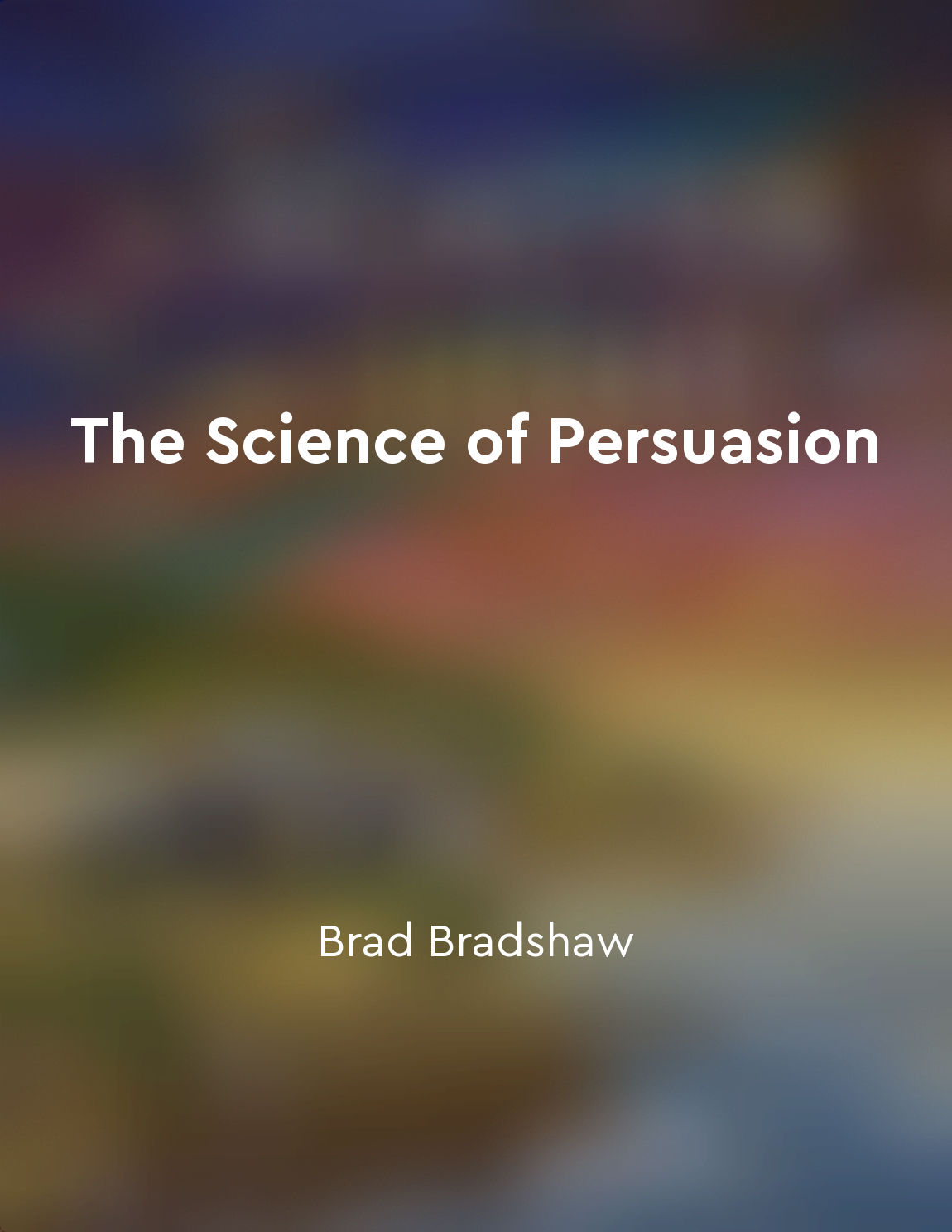Audio available in app
Reciprocity can foster persuasion from "summary" of The Science of Persuasion by Brad Bradshaw
Reciprocity is a powerful tool in the art of persuasion. When we receive something from someone, we feel obligated to repay the favor. This innate sense of obligation can be harnessed to influence others to act in a certain way. By giving something to someone before asking for something in return, we create a sense of indebtedness in the recipient. This feeling of indebtedness compels the person to reciprocate the gesture, even if they may not have initially intended to do so. The key to using reciprocity effectively is to give something of value to the other person. This could be a small gift, a favor, or even just some helpful information. By providing value upfront, we demonstrate our goodwill and sincerity, making the other person more likely to trust us and be receptive to our requests. This principle is based on the idea that people are more willing to comply with a request from someone they feel a sense of indebtedness towards. Reciprocity works because it taps into our deeply ingrained sense of fairness and reciprocity. When someone does something nice for us, we feel compelled to return the favor in order to maintain a sense of balance in the relationship. This principle is so powerful that it can even override our own self-interest at times. By leveraging the reciprocity principle, we can increase the likelihood that others will be persuaded to take a desired course of action.- It is important to approach the interaction with genuine intentions. People are adept at detecting insincerity, so it is crucial to give without expecting anything in return. By being authentic in our giving, we can build trust and rapport with others, making them more likely to reciprocate our gestures. Ultimately, reciprocity can be a potent tool in the art of persuasion, allowing us to influence others in a subtle yet powerful way.


